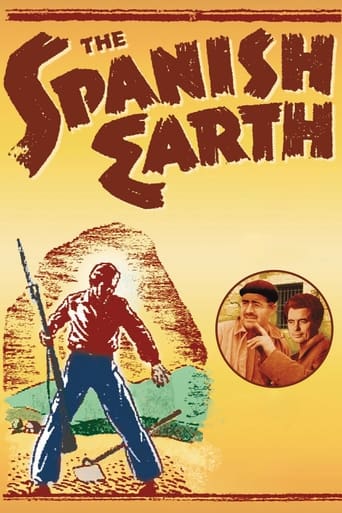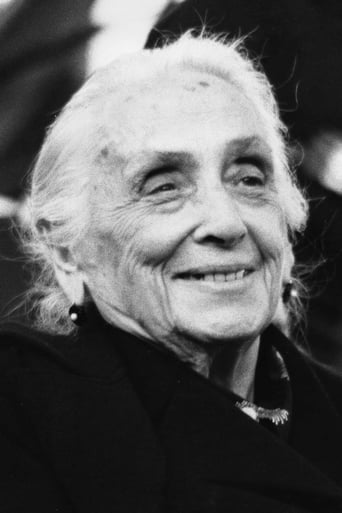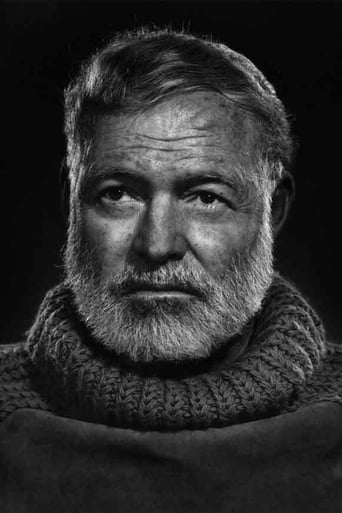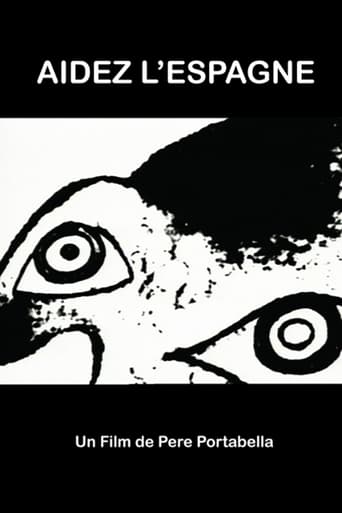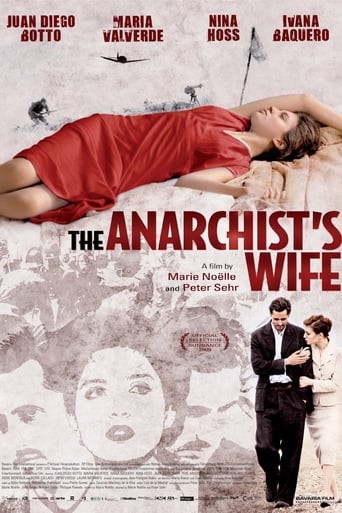The Spanish Earth (1937)
A propaganda film made during the Spanish Civil War in support of the Republican government against the rebellion by Gen. Francisco Franco's forces who were backed by Nazi Germany and Fascist Italy. The film would have been seen by those making it as a documentary.
Watch Trailer
Cast
Similar titles
Reviews
Crappy film
This story has more twists and turns than a second-rate soap opera.
Great story, amazing characters, superb action, enthralling cinematography. Yes, this is something I am glad I spent money on.
Worth seeing just to witness how winsome it is.
This famous "on the fly" barely-feature-length documentary about the Spanish Civil War was endorsed by the likes of writers Ernest Hemingway (who provides the dry narration), John Dos Passos, Lilian Hellman and actor Orson Welles (whose name also appears on the poster but whose vocal contributions were eventually dropped). Starting out with the images of farmers 'testing' for water sources on their lands, it soon settles down to denoting how the conflict was affecting a besieged Madrid: from the breadlines offering insufficient stamped supplies to the clandestine Loyalist meetings to the destruction left in the wake of the Fascist (read Nazis and Italians) aerial bombings.Although the Spanish Civil War would be the subject of several Hollywood movies – most prestigiously via Hemingway's own epic FOR WHOM THE BELL TOLLS (1943) – and cast an indelible shadow over the careers of future native film-makers (especially Carlos Saura), we know precious little about the conflict itself and, tellingly, we do not learn much here either; indeed, Ivens is merely content to observe – panicking villagers mourning their dead and loss of property – and report – we are told that the bearded Loyalist officer seen here organizing and inspecting his troops will die in the next assault! Perhaps the most striking moment occurs when a bike-riding mailman enters a building and has to literally skip over the corpses of victims still blocking the foyer entrance! Interestingly, the U.S. funded production was selected by the "National Board of Review" as one of the year's Top 10 foreign films!
This jumbled and disjointed documentary by the Republican Government of Spain against the Nazi backed Fascist revolt by Franco's military has sufficient civilian carnage and idealism that must have inspired sideline support in its day. It is also a valuable document of eyewitness clarity that informs a mostly forgotten era during the rise of Fascism In Europe. Written and narrated by famed novelists Ernest Hemingway and John Dos Passos who would later break with each other over Republican practices the film's primitive construct sometimes acts as a metaphor for what was truly a chaotic conflict with poorly trained volunteers manning the front lines with incredible spirit against the well oiled Nazi backed machine. In its day though it must have served its purpose being played for sympathetic audiences cheering the principals and inspiring others to the cause. Hemingway makes for a weak narrator and the editing and sound is pedestrian obfuscating the flow much of the time but the spirit and determination of this idealistic stand by a group branded as pre-mature anti-Fascists comes thru loud and clear.
The movie makes no conventional attempt to situate viewers at the outset. Instead we're plunged immediately into a series of images loosely organized around the theme of hard Spanish earth. However, the pastoral scenes soon give way to images of fighting men. But in the absence of explanation, viewers can't be sure if the soldiers are Republican or Falange (fascist). It's only after about 15-minutes, we find out these are people supporting the republic. Maybe Ivens or Hemingway is making a subtle point by withholding information, but the absence could be confusing to contemporary viewers.The movie itself has some compelling images; however, I doubt that most go beyond generic war imagery of that time. One does, nonetheless, get a sense of the impact on the civilian population in the areas surrounding Madrid. In no sense is the film a survey of that bloody civil war as a whole. Instead, it's a narrow slice from the loyalist republican pov. But neither is the movie simply Stalinist agitprop, (the Soviets supported the elected government; Hitler and Mussolini the Falangist rebels; while the US and England remained neutral). Rather, a strong subtextual theme appears to liken support for the republic to bringing water to the dry Spanish earth, a not unreasonable pov. It's also worth noting the anti-fascist side quickly became a cause-célèbre among artists and intellectuals disgusted by the US and England's refusal to aid a fellow democratic government. Thus the movie has a number of illustrious names attached to it. It's likely because of these names that I expected more than the overall result delivers. Nonetheless, the brief documentary remains a snapshot worth watching, even for those unfamiliar with the historical period.
Spanish Earth, The (1937) *** (out of 4) Nice documentary from Joris Ivens about the struggles of the Spanish Republic who were trying to save their lives against forces led by Gen. Franco who was being backed by Nazi Germany. Ernest Hemingway narrates this documentary, which lasts just over 53-minutes. At that short of a running time you know not every aspect of this legendary battle is going to be talked about so if you're needing a history lesson then this here probably isn't going to be for you. We really don't learn too much about how this battle got started and of course there's no conclusion but THE Spanish EARTH remains rather interesting simply because of the images and the heart behind the storytelling. There's no question that the production company and director Ivens wanted to stand up against those they felt were doing evil things against human beings only wanting to put food on the table for their children. There are many striking visuals where we see people waiting in line for food, which of course runs out before everyone could be fed. We get images of the young men going off to war to fight and of course with war comes the images of many who lost their lives. The production is rather crude as the cinematography isn't all that impressive and there are many issues with the sound but this really doesn't take away from the film and in many ways it makes it even more raw. What I was most impressed with where the images that really put us in the middle of this battle and one of the most striking happens at a bread line where we see that even bread has been stamped so that the poor knows who it belongs to. Film buffs will notice that Orson Welles gets credited for "narration" but his vocals were dropped and replaced by Hemingway.
